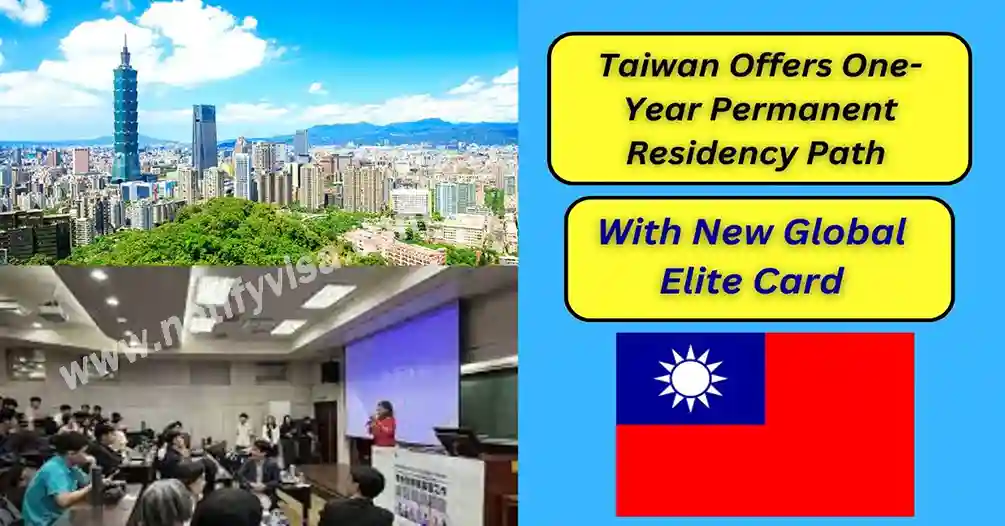Taiwan has announced that it will launch a Global Elite Card and a Digital Nomad Visa to address its projected workforce shortage.
By 2028, Taiwan would require 350,000 fewer workers according to the National Development Council (NDC). The nation intends to bring on 200,000 foreign employees comprising 80,000 technicians and 120,000 professionals to close this deficit.
Designed for international professionals making over NT$6 million (US$187,000) a year NDC Deputy Head Kao Shien-quey unveiled the Global Elite Card.
Compared to the current three-year requirement for Gold Card holders this card speeds up the path to permanent residency to one year.
Check Also: Kuwait Cancels Citizenship of Almost 10,000 People with Dual Nationality
The benefits of the Global Elite Card are not limited to the cardholder. Spouses will receive work permits from the government and dependent relatives will be able to enter and exit without any problems. It was highlighted by Kao that spouses of Global Elite Cardholders will be eligible for “citizen-like” benefits such as “social welfare, disability services and long-term care.”
To go along with the Global Elite Card, Taiwan also intends to introduce a Digital Nomad Visa. Freelancers and remote workers will be authorized to remain in Taiwan for a maximum of six months with this visa.
According to NDC Minister Liu Chin-ching there are an estimated 35 million digital nomads worldwide which means Taiwan has access to a sizable talent pool.
Liu was upbeat about the possible effects of the Digital Nomad Visa saying that “digital nomads will stay in Taiwan if they fall in love with it.” It is hoped that 10,000 of the 100,000 visitors will remain. However, Liu did not clarify whether or how holders of Digital Nomad Visas may convert to long-term resident permits.
The Talent Taiwan Centre was founded by the government to foster an atmosphere that is friendly to talent from across the world. The NDC’s Human Resources Development Department Director, Hsieh Chia-i clarified that the center will offer specific, one-stop services based on individual needs and that it intends to increase its footprint across the country.
The eligibility requirements and application procedures for the Global Elite Card and the Digital Nomad Visa have not yet been made public by the government.
Taiwan’s government needs parliamentary approval to change the country’s current immigration laws to implement these new visa schemes. Kao intends to complete the plan shortly and present it to the Legislative Yuan for consideration during this Friday’s session.
Before amending existing legislation this legislative process will enable parliamentarians to carefully review and discuss the proposed policies.
Taiwan’s efforts are akin to those of its neighbors, South Korea, Japan and Thailand who are all attempting to draw in highly qualified workers and digital nomads.



